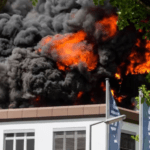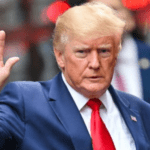The High Representative of the European Union for Foreign Policy and Security, Josep Borrell, in a press conference after the meeting of the heads of diplomacy of the member countries with the 6 counterparts from the Western Balkans, said that the ambitions for membership in the bloc cannot be matched with the ties close to official Moscow.
“The harmonization of the countries of the Western Balkans with our common foreign and security policy is interpreted as an expression of their strategic choice and commitment to membership, while maintaining close ties with the Putin regime is not in accordance with the construction of a common future within the European Union and outside it,” declared the head of European diplomacy.
Borell asks the Balkans to stay with the EU and distance themselves from Putin – Gjuric answered him in Luxembourg
The High Representative of the European Union for Foreign Policy and Security, Josep Borrell, in a press conference after the meeting of the heads of diplomacy of the member countries with the 6 counterparts from the Western Balkans, said that the ambitions for membership in the bloc cannot be matched with the ties close to official Moscow.
“The harmonization of the countries of the Western Balkans with our common foreign and security policy is interpreted as an expression of their strategic choice and commitment to membership, while maintaining close ties with the Putin regime is not in accordance with the construction of a common future within the European Union and outside it,” declared the head of European diplomacy.
In the framework of this meeting, the foreign ministers of the European countries had a working lunch with their colleagues from the Western Balkan region, and harmonization with foreign policy, including sanctions against Russia, was one of the key topics of discussion.
According to Borrell, the European Union is ready to further deepen the gradual integration and provide enhanced support to partners in the Western Balkans, but Brussels expects these countries to stand by the Europeans in defense of the international order, especially Ukraine and the masses undertaken to cope with the Russian invasion of Ukraine.
All Western Balkan countries, except Serbia, have coordinated their actions with the decisions of the European Union regarding sanctions against Russia. Since the start of the war, the EU has imposed 14 sanctions packages against Russia in response to its aggression against Ukraine.
Serbian Foreign Minister Marko Djuric, who attended the working lunch, suggested that Serbia will harmonize its foreign policy when it joins the EU.
“We have discussed (about sanctions). “Serbia will undoubtedly have a common foreign and security policy when it becomes a member of the EU and will be in a position to influence the common foreign and security policy,” said Gjuriq at the end of the meeting.
Apart from Montenegro, Serbia is considered a leader in the accession process. However, as of 2021, the country has not opened any chapter in membership talks, precisely because of its refusal to impose sanctions on Russia.
Candidate countries for full membership are expected to gradually harmonize their policies with those of the EU. This harmonization must be complete at the time of membership.
Ministers also discussed the conflict in Ukraine, in particular military support for Ukraine, the outcome of the Swiss peace summit, the use of profits from frozen Russian assets, initiatives within the European Peace Fund and sanctions. During the Middle East part of the talks, EU ministers focused on the Union’s efforts to promote peace based on the two-state model and the humanitarian situation in Gaza.







